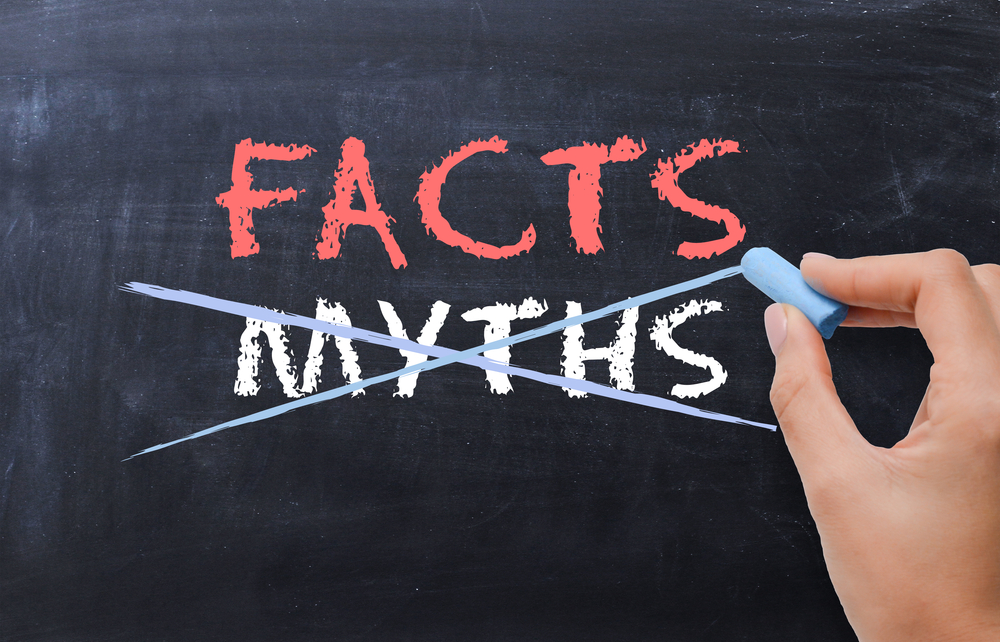Keto myths are everywhere. Don’t know what to believe? Let’s check it out.The ketogenic diet refers to a high fat, low carb diet and is currently used to promote weight loss. With this diet, many people are able to reach ketosis. Individuals who use this diet for weight loss shift from using glucose as the main fuel for the body to using ketone bodies which are derived from fat. In other words, ketosis is a state where the body becomes fat adapted. At this point, the body is burning fat at a higher rate than what would normally happen.
Indeed, the keto diet is now a very popular method for losing weight. As its popularity increases, so many statements have been made about the keto diet. Some of these statements are true, while others are baseless. In fact, some of these rumors even refer to the keto diet as a fad, claiming that it cannot help with weight loss. Because of these untruths and myths, so many persons that would have been interested in starting the keto diet do not even want to give it a try.
One interesting thing about keto diet myths is that they remain what they are – myths. Several scientific studies debunk these myths and state the truth concerning the keto diet. This article discusses seven popular keto myths and realities.
The Keto Myths
The keto diet is a high protein diet: That the keto diet is a high protein diet is a dangerous misconception. This makes some tailor their diet accordingly causing an increase in protein level. Some have even mistakenly referred to the keto diet as the Atkins diet due to misinformation. Although the Atkins diet and keto diet have many similarities, they are not the same. The Atkins diet restricts carbohydrates and puts more emphasis on consuming fats and proteins. The keto diet, on the other hand, encourages consumption of healthy fats mostly in addition to moderate quantity of proteins and fewer carbohydrates.
In the keto diet, any type of fat can be consumed: This is another popular myth that surrounds the keto diet. Some people assume that since fat is the major focus of the keto diet, any kind of fat can be consumed. For some, it is even difficult to differentiate between good fat and bad fat. Such ones include any type of fat in their diet and increase the risk of certain diseases. Consuming any type of fat without confirming its source may also cause clogged arteries and high cholesterol levels.
There is no difference between ketosis and ketoacidosis: Ketosis and ketoacidosis are believed by some to refer to the same thing. This belief may be as a result of the similarities in their names. Some also think this way because both ketosis and ketoacidosis are triggered by increase in ketone levels in the body. There have also been reports about health professionals who tell patients that ketosis is life-threatening. They encourage patients to stay away from the keto diet. This clearly shows that a clear distinction needs to be made between ketosis and ketoacidosis.
The keto diet slows down metabolism and lowers energy level: Some people think that while the keto diet is able to promote weight loss, it slows down the normal metabolic rate. They conclude that the keto diet should be avoided for this reason. There is also the belief that the energy level of an individual will be low throughout the keto diet. People who listen to such myths end up not benefitting from the keto diet. They assume that the keto diet will weaken them, preventing them from carrying out normal activities.
The keto diet is only meant for weight loss: The keto diet is now very popular for weight loss. It is no wonder that people believe that it is only meant for this purpose. This belief has discouraged many from starting with the diet. Different people have different reasons for adopting a particular diet. Those who do not wish to use the keto diet for weight loss may not see the need in starting the diet.
The keto diet is not suitable for diabetics: The keto diet is a popular weight loss diet endorsed by many. In fact, many people have also reported that they have successfully been able to achieve weight loss using the keto diet. Recent research studies show that the keto diet can increase the risk of type 2 diabetes. This study conducted on mice showed that the keto diet compromised the use of insulin by the body. This results in insulin resistance, a condition that significantly increases the risk of type 2 diabetes.
The ketogenic diet can lead to stunted growth in children and should be done for very long periods: Can children take part in the keto diet? This has been a topic of debate, and several studies support that the keto diet is not for children. There are also other assumptions as to how long the keto diet should be carried out. They maintain that the longer the diet is carried out the most lasting its effects on the weight of an individual.
The Facts
The keto diet is a high-fat diet: Contrary to what some people believe, the keto diet is actually a high-fat low-carb diet. In fact, the keto pyramid, a representative of the different proportions of macronutrients that should be consumed supports this fact. A total of about 70% of healthy fat is required on the keto diet. This suggests that the diet should consist of healthy fat in addition to proteins and minimal carbohydrates.
Ketosis is different from ketoacidosis: Although they sound similar, ketosis is very different from ketoacidosis. While ketosis is a natural process that is considered safe, ketoacidosis is a complication of Type 2 diabetes that is life-threatening. When ketosis occurs, the body starts burning fat instead of glucose. In ketoacidosis, the level of ketones produced is dangerously high leading to rapid accumulation of ketones in the blood.
Metabolism is boosted on the keto diet: Slow metabolism is common with many weight-loss diets, including the keto diet. The fact is that as long as one restricts calories on any diet, it will definitely slow down metabolism. It does not matter whether or not a person is on the keto diet since a slower metabolic rate can occur on any diet. In one study, despite the weight loss achieved, there was no drop in basal metabolic rate. This suggests that metabolism is boosted even though there is significant weight loss while on the keto diet.
The keto diet is not meant for only weight loss: The primary use of the keto diet in medicine is to treat epilepsy in children. Many scientific studies show that the ketones produced when the body is in ketosis can prevent epileptic seizures. Apart from its use for weight loss, the keto diet has also been indicated as useful in the therapeutic management of several neurologic disorders. Some of these include autism, sleep disorders, and Alzheimer’s disease.
People with diabetes can benefit from the keto diet: There are several ways that people with diabetes can gain from the keto diet. First, it can help to reduce blood sugar level. This reduces and possibly eliminates the individual’s dependence on insulin. According to one research, with a keto diet, glycemic control is alsoimproved.



